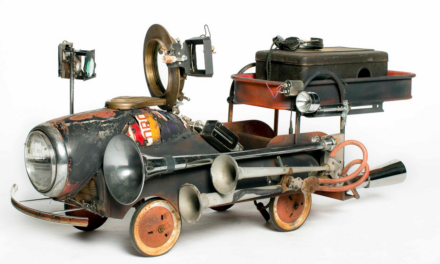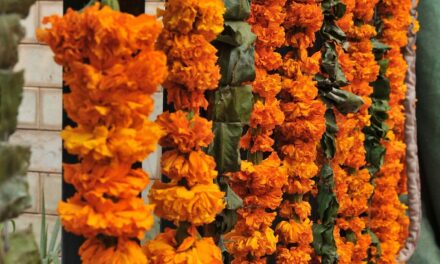My husband has been dying for four years. Or rather, Richard has been struggling to live, while I, his wife and sole caregiver, have been preparing for the day he will be gone. Childless and estranged from both parents, I never cared for anyone before. Until my husband’s illness, I wouldn’t have believed my emotionally fragile self could.
Like many people, I have imagined death as a quick, final act. In these days of random gun violence, it’s not unreasonable to fear the sudden pop-pop-pop from a stranger’s firearm in public and you’re gone. But I’ve learned from my husband and my caregiver support group that most people die slowly, while pieces of life ebb away.
As Richard’s condition worsens, I have been realizing that we humans understand how to live but know little or nothing about dying. Western medicine is dedicated to keeping us alive as long as possible, regardless of the consequences. This is especially true for cancer care.
My husband was diagnosed with cancer four years ago. Unfortunately, by the time his cancer was discovered, it had spread. A stage four cancer diagnosis like Richard’s is not curable but can be treated. As most cancer patients and their loved ones learn, treatments can be nearly as deadly as the disease.
Giving chemotherapy for metastatic cancer is like building a wall to keep the ocean from flooding a beachfront home. Eventually, waves will overpower the wall, just as chemotherapy works until it doesn’t.
For four years, Richard and I have been dedicated to keeping him alive. We have succeeded so far. Lately, though, I have gotten hints that the cancer might soon start winning. So, the question has become, How do we start to teach ourselves about dying?

No one is supposed to die, especially the person you most love. Some people are living these days to ages that would have been unthinkable a generation ago. It’s easy to assume we will go on and on, maybe living long enough to get replacements for every worn-out part.
Yet if we open our eyes, we can see that even young people die. In our country alone, nearly one million people have succumbed to the coronavirus, and more deaths will certainly come. While those with underlying health conditions and weakened immune systems have been most vulnerable, previously healthy men, women, and children have been struck down by this virus as well.
Dying before reaching a ripe old age, such as ninety-something, can seem unfair. Many times, Richard and I have felt this way about his cancer. He mostly did the right things, quitting cigarettes early, never drinking alcohol, eating well and exercising, not to mention trying to be a good and decent human being. So why him?
A friend who has a regular meditation practice would answer the question, “Why me?” with another question, “Why not me?” In the end, we are all going to die, some early, and others later. As the Buddha taught, life is suffering. To expect one’s life to be free from pain is an illusion.

Inviting death into a life sounds morbid. More than that, accepting that death is coming, and much sooner than we would like, seems particularly un-American. We are a country that celebrates youth and denigrates aging. Any doubts about these beliefs can be swept aside by considering our response to Covid-19. Early on, when it became apparent that the elderly were the virus’s preferred victims, some politicians called for opening the economy. Letting the virus kill people over sixty-five, they argued, wasn’t much of a loss.
For four years, Richard and I have lived from test to test, celebrating when the numbers headed in the right direction and scans confirmed the numbers. Acquaintances lacking intimate knowledge of stage four cancer have prayed for remission, unlikely at this point. We continually cheer when results show the cancer to be stable. But as we creep closer to the place we fear, when the bad cells become resistant to treatment, I keep asking myself, Can we accept death? Can we let death in?
I met my husband somewhat late, after a string of failed relationships. During our nearly thirty years together, I have often feared he would leave me. Arguments most couples experience easily triggered such dire thoughts.
Six years in therapy helped me understand my fear of being abandoned. Having grown up with a military dad who was frequently away and emotionally distant at home, I found myself attracted to romantic partners who once we got close, backed off. Richard wasn’t like that, but I expected him to be. The day we learned that the back pain he had been suffering from for several months was caused by lesions in his spine, likely metastatic cancer, I sobbed. This time, he was going to leave.
Knowing almost nothing about cancer, I assumed he would die right away. Yet every time I have thought, Well, this is it, a treatment or medication has succeeded in keeping him alive.
For the past year, I have been meeting virtually with a group of people sailing in a similar boat as mine, making their way through rough waters, expecting at every moment to get swamped. The caregivers in my support group are tending to loved ones with a variety of serious illnesses, but mostly cancer. Like me, they worry incessantly, their fears only lessening when the latest tests show hopeful results. As is true for me, they don’t expect the cancer to one day be gone. Instead, they hope for a bit more time.

Over and over again, I have listened to the heartbreaking details of what happens when time for a loved one runs out. I know more than I ever hoped about a person dying from cancer’s final weeks and months. Nearly everyone opts to be in hospice, and those dedicated healthcare professionals help. But in the end, it’s amateurs like me who shoulder most of the burden, and all of the emotional trauma.
I fear our time may be coming, not at some distant point, but sooner than we’d like. How do we prepare? I ask. How does a person get ready to die? And how, as a loving wife and caregiver to my husband, can I help?
For months after being diagnosed, my husband cheerfully assured family members and friends that he was going to beat this thing. He had survived a childhood near-drowning off a Santa Cruz, California beach; a shooting while chasing a robbery suspect, in his youthful stint as an Oakland, California police officer; and double-bypass heart surgery, our first year living in Portland, Oregon. Like a cat, Richard assumed he had several more lives. I tried convincing him that he couldn’t beat stage four cancer, because the disease was no longer containable. While he eventually accepted that truth, Richard never totally believed the cancer would severely shorten his life. As he often tried assuring me, there were multiple treatments. If one treatment quit working, he would be given another that would.
Only recently has he begun to acknowledge that we may reach a point where no treatment will kill enough cancer cells to keep him alive, or it might be better to forego treatment, choosing quality, rather than quantity, of life.

While this is my sole experience with a serious terminal illness, I have come a long way these past four years. Something I learned from a wise therapist guides my thinking. I can, Dr. Lori frequently assured me, hold both. As I came to understand, she was saying it’s possible to feel both happy and sad at the same time. These days, I interpret hold both this way. I can, and do, continue to hope that the treatment will work, and Richard will be with me for years to come. At the same time, I accept that he is going to die.
I have studied enough Buddhism to know that the Buddha considered attachment to be one of the greatest sources of human misery. Having spent countless hours hoping and praying that the results of Richard’s tests will be encouraging, I am intimately aware of how attachment can metastasize into anxiety’s pain. Years ago, during an especially tough emotional time, I learned to watch my anxious thoughts, letting them go, rather than trying to deny or banish them with arguments. Simply being with what I dreaded helped.
I am wondering now if accepting death, letting it in versus continually trying to argue it away, will make this journey to the inevitable any easier. I also want to know something else. Can embracing death give us gifts we won’t receive by denying it?
Every so often, Richard and I step into the scary subject of his impending death and my loss. We talk about what might happen once the treatments quit. Once or twice, he has asked what I will do when he’s gone. Through tears, I explain my belief that grief will never leave me. But then I assure him I will be all right.

What happens in each of these talks is not that we make a plan for the end or I decide how I will create a life without a husband, my other half. Instead, we cry over the unfathomable loss and recognize that the love we have for one another will somehow see us through.
Last week, a woman in my group who is taking care of her husband after two debilitating strokes admitted that she loved him more now than when they were able to travel, go out to restaurants, and just have fun. Hearing this, I nodded, as did others in the meeting, signaling we felt the same way.
On a recent walk, I asked Richard if he had considered what life after death might be like. He said he hadn’t. I told him I thought it would be a place of peace, where the pain from cancer, both physical and psychological, would have become a faded and distant memory.
In a mindfulness meditation class we took at a local cancer support center not long after Richard was diagnosed, the teacher discussed the importance of acknowledging the illness and our feelings about it. She stressed that acknowledgement and acceptance were not the same thing.
In our case, letting death in doesn’t mean we are celebrating its coming arrival. Instead, we are acknowledging the signs we have begun seeing along the road, letting us know where this journey we have been on is ultimately leading.








I was struck by the statement that caring for a loved one deepens one’s love more than simply having fun together. That has been a valuable part of my own journey, and yet one would never wish the suffering upon a loved one that necessitates your care. I also appreciate the advice to “hold both.” Yes, death very much challenges us to somehow hold opposites without being torn apart by them. Thank you for your honest and wise sharing.
Thank you so much, Lory.